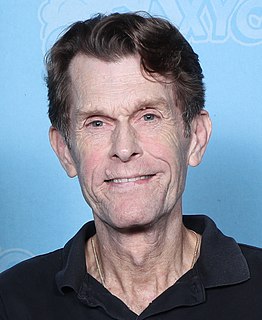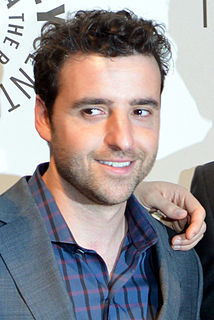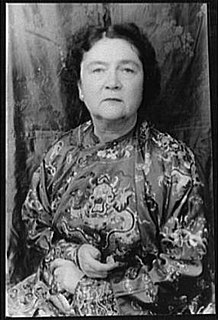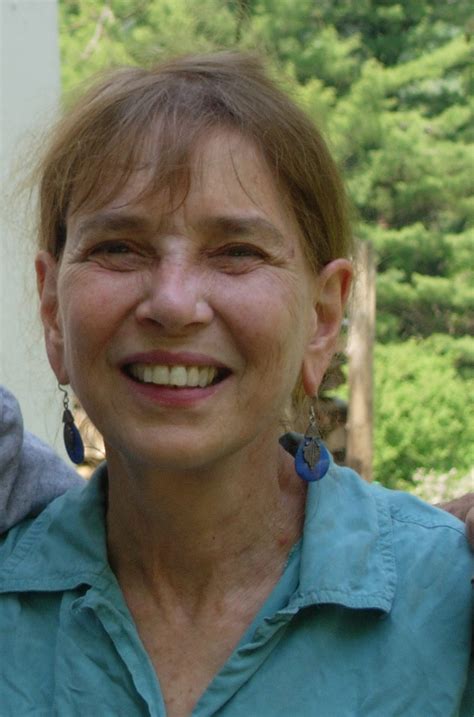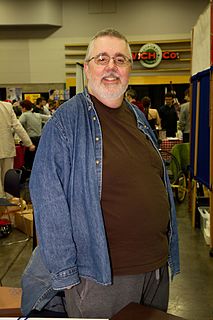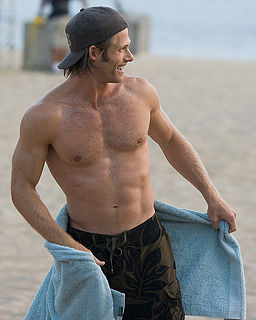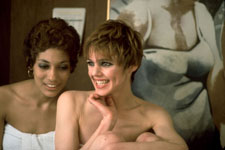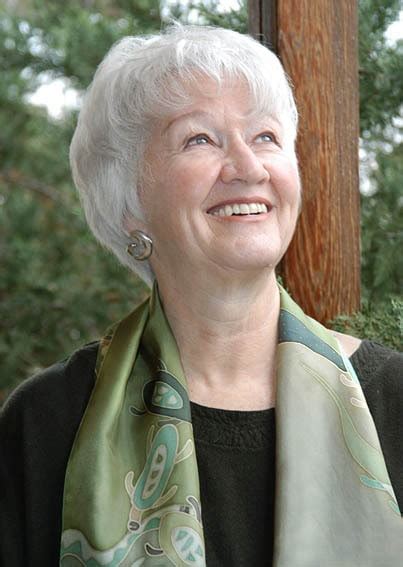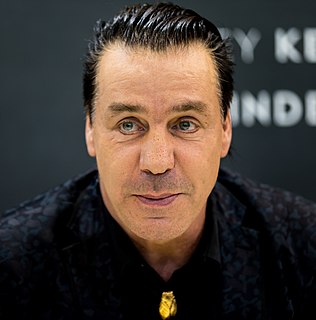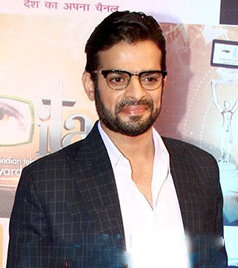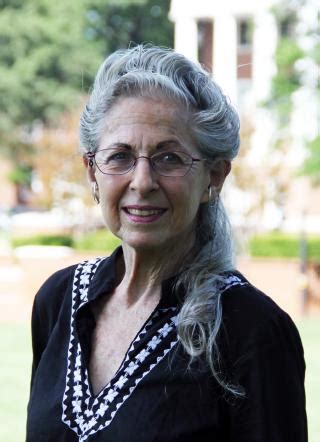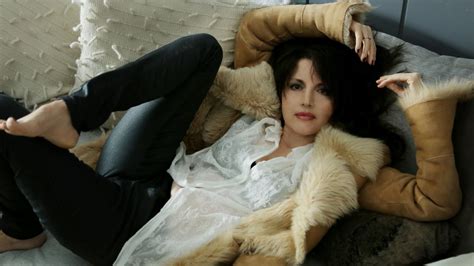Top 322 Adolescent Quotes & Sayings - Page 5
Explore popular Adolescent quotes.
Last updated on April 22, 2025.
Researchers have been asking a basic question of young people. Should men be allowed to beat their wives? How you answer that question may depend on where you live. U.N. researchers put that question to adolescent girls in India and Pakistan and 53 percent - a majority of girls - said yes, wife beating is justifiable even if it's for refusing sex.
From the writing stage, I had envisioned a film that would be bright and light, even if the movie addresses adolescent unrest and self-destructive behavior. Talking about adolescence, I wanted to make a very musical film that was also a love story with a sensorial, sensual dimension and which had a strong emotional impact.
As Elders, we are fully committed to the principle that all human beings are of equal worth. You will see that we highlight equality for girls and women - not just women's rights. That is important as girls, especially adolescent girls, have been almost invisible in debates on equal rights. Yet it is in adolescence that events can have a huge effect on a girl's life.
Barack Obama, who might be mercifully closing the Clinton parenthesis in presidential history, is refreshingly cerebral amid this recrudescence of the paranoid style in American politics. He is the un-Edwards and un-Huckabee - an adult aiming to reform the real world rather than an adolescent fantasizing mock-heroic 'fights' against fictitious villains in a left-wing cartoon version of this country.
When you're an adolescent, you suddenly wake up one morning and your body is an enemy. There are hormonal changes, physical changes, emotional changes. People are saying to you, 'Now you have to make the decisions that define the rest of your life.' The X-Men takes those elements and pushes them one giant step farther.
[10 Things I Hate About You] keeps popping up, and it's become a go-to film specifically for adolescent girls who are trying to find their voice, which is a really important thing, and the characters in the film, the two sisters played by Julia Stiles and Larisa Oleynik, they became archetypes for young teenage girls to look up to and emulate.
my Mamá Grande, a tiny Mayan woman, took me aside when I was an adolescent and told me several things that didn't make a bit of sense to my young and inattentive ears, and as young people tend to waste all attempts of our elders to relay to us wisdom accumulated over the decades, I thought my Mamá Grande had a few mice in the attic.
I grew up in a home in which loyalty to family was central to my father's outlook. Adolescent changes to my outlook (which set me against parental values) made me very critical of loyalty, reinforced by certain religious writers I found influential at that time. Harry Blamires, The Christian Mind. But I remained conflicted about loyalty.
How can I look back and not speak of the stupid learning about birth? Of the stupid learning that people make love, and how it seemed the reason for all things, the intimacy of my wondering, the illumination that to an adolescent was the cause for life around me, the reason why the unhappy people I knew did not kill themselves?
We are living in a world in which we don't give the young enough reason to live. The temper and the lyrics of a lot of punk music and so on is very, life sucks and then you die, sort of theory. I feel life is cheaper and death is more attractive now than it was when I was an adolescent, as I remember. Suicide was a personal pathology when it was committed. There was no society approval of it, like there certainly is in Palestine and some quarters of Iraq.
This is the hope of many adolescent girls--to capture a parent's heart with love for them as they are, as people. They reject thenotion of being loved just because they are the child of the parent. They want the parent to fall in love with them all over again, because being new, they deserve a new love.
Peter Fleming was a famous English traveler, explorer and adventurer, whose non-fiction books were hugely successful. My father owned signed copies of all of them - he and Peter Fleming had become acquainted over some detail of set design at the Korda film studio in Shepperton - and I had read each of them with breathless adolescent excitement.
I think 'Speech & Debate' surprised people because it's a play about teenagers that took the teenagers very seriously. They are very real. People wanted to see if they identified with one of the kids, that loneliness, that yearning for something bigger. That feeling of being stuck, it's very adolescent, but those kinds of feelings linger on.
Were I to deduce any system from my feelings on leaving Eton, it might be called The Theory of Permanent Adolescence. It is the theory that the experiences undergone by boys at the great public schools, their glories and disappointments, are so intense as to dominate their lives and to arrest their development. From these it results that the greater part of the ruling class remains adolescent, school-minded, self-conscious, cowardly, sentimental, and in the last analysis homosexual.
Hemingway, damn his soul, makes everything he writes terrifically exciting (and incidentally makes all us second-raters seem positively adolescent) by the seemingly simple expedient of the iceberg principle - three-fourths of the substance under the surface. He comes closer that way to retaining the magic of the original, unexpressed idea or emotion, which is always more stirring than any words. But just try and do it!
That adolescent me, the girl who was, as I remember her, insecure, unsure, dreaming, yearning, longing, that girl who was hard on herself, who was cowardly and brave, who was confused and determined-that girl who was me-still exists. I call on her when I write. I am the me of today-the person who has become a woman, a mother, a writer. Yet I am the me of all those other days as well. I believe in the reality of that past.
Insults from an adolescent daughter are more painful, because they are seen as coming not from a child who lashes out impulsively,who has moments of intense anger and of negative feelings which are not integrated into that large body of responses, impressions and emotions we call 'our feelings for someone,' but instead they are coming from someone who is seen to know what she does.
I felt a certain modicum of success because I had been paid well to be an actor for the first time in my life, but I felt like I had done adolescent work on the show, and stepping into the New York theater arena was the first time I felt like I'd come into my own. I felt like I was proving myself in a gladiatorial arena.
Parents are never forgiven for not giving just the right response at the appropriate moment. Or, rather, there are particular times in the adolescent's or young adult's life, when a certain response is needed, and this need is not met, and the failure to meet this need is forever remembered, and is never forgiven.
The violent illiteracies of the graffiti, the clenched silence of the adolescent, the nonsense cries from the stage-happening, are resolutely strategic. The insurgent and the freak-out have broken off discourse with a cultural system which they despise as a cruel, antiquated fraud. They will not bandy words with it. Accept, even momentarily, the conventions of literate linguistic exchange, and you are caught in the net of the old values, of the grammars that can condescend or enslave.
What causes adolescents to rebel is not the assertion of authority but the arbitrary use of power, with little explanation of therules and no involvement in decision-making. . . . Involving the adolescent in decisions doesn't mean that you are giving up your authority. It means acknowledging that the teenager is growing up and has the right to participate in decisions that affect his or her life.
The hip-hop that I really connected with was Public Enemy, KRS-One, Ice Cube, and N.W.A. That late '80s and early '90s era. The beginning of gangster rap and the beginning of politically conscious rap. I had a very immature, adolescent feeling of, "Wow, I can really connect with these people through the stories they're telling in this music."
Turbulent childhood, adolescent daydreams in the drone of the bus's motor, mornings, unspoiled girls, beaches, young muscles always at the peak of their effort, evening's slight anxiety in a sixteen-year-old-heart, lust for life, fame, and ever the same sky through the years, unfailing in strength and light, itself insatiable, consuming one by one over a period of months the victims stretched out in the form of crosses on the beach at the deathlike hour of noon.
Why do people stop developing, or, like they stop the way you can rate their, psychologically, their development? Where they stop, and just from being children to maybe stopping at a very adolescent age, and they stay there until they die. Physically die. I mean, they react adolescently. They don't change. They don't develop. They don't — it's that continual read, that process which is is the total threat for the ego.
And so really, you have given me no choice but to take you shopping by force.” She sighed, then reached up, dropping her sunglasses down from their perch on her head to cover her eyes. “Do you even realize how happy the average teenage girl would be in your shoes? I have a credit card. We’re at the mall. I want to buy you things. It’s like adolescent nirvana.” - Cora
If war stems from unmet needs related to male adolescent ritual, that's something that we need to examine. I'm interested in the possibility of simply getting rid of war. I'd be no more willing to let go of that than to let go of the possibility of eradicating cancer. That's not to say I'm certain we can, but I am willing to use any energy at all in the quest.
No one thinks anything silly is suitable when they are an adolescent. Such an enormous share of their own behavior is silly that they lose all proper perspective on silliness, like a baker who is nauseated by the sight of his own eclairs. This provides another good argument for the emerging theory that the best use of cryogenics is to freeze all human beings when they are between the ages of twelve and nineteen.
A lot of us first aspired to far-ranging travel and exotic adventure early in our teens; these ambitions are, in fact, adolescent in nature, which I find an inspiring idea...Thus, when we allow ourselves to imagine as we once did, we know, with a sudden jarring clarity, that if we don't go right now, we're never going to do it. And we'll be haunted by our unrealized dreams and know that we have sinned against ourselves gravely.
The landscape was snow and green ice on broken mountains. These weren't old mountains, worn down by time and weather and full of gentle ski slopes, but young, sulky, adolescent mountains. They held secret ravines and merciless crevices. One yodel out of place would attract, not the jolly echo of a lonely goatherd, but fifty tons of express-delivery snow.
I have gained and sustained my optimism as a humble student of our living universe, our living Earth, which clearly shows us the way out of our adolescent crisis into a mature global future. The sooner we create our vision of all we desire, set our intention to implement it together, and put our individual capacities into collective action, the greater our chances of success.
Imagine a senator running for president whose positions included halving the military budget, socializing the medical system, re-regulating the communications and electrical industries, establishing a guaranteed minimum income for all Americans, and equalizing funding for all schools regardless of property valuations - and who promised to fire Alan Greenspan, counseled withdrawal from the World Trade Organization, and, for good measure, spoke warmly of adolescent sexual experimentation. That was Barry Goldwater, conservative.
When I was an adolescent, I was obsessed with having many commercial things, cars, clothes, stupid things. Now that I have all that, I understand that the superfluous things can turn to you into a very stupid idiot-type. In East Germany there were very few things, but there was also a feeling of solidarity that no longer exists. Now we are up to the neck in consumption, the ego, the individualism. Now before friendship, it is merchandise.
When a child is born, I once explained to the kids, some dads lay down bottles of wine for them that will mature when they grow up into ungrateful adults. Instead, what you're going to get from me, as each of you turns sixteen, is a library of the one hundred books that gave me the most pleasure when I was a know-nothing adolescent.
A middle-aged woman who looked like someone's cleaning lady, a shrieking adolescent lunatic and a talkshow host with an orange face... It didn't add up. Suicide wasn't invented for people like this. It was invented for people like Virginia Woolf and Nick Drake. And Me. Suicide was supposed to be cool.
I feel like I spent so much time trying to understand my identity and my identity as an artist. But when all is said and done, at this age, I feel the most like I felt when I was 11. And all those talents I had when I was 11 and 12 - I'm letting them sort of happen again. I can't speak for men, but for women - we go back to a kind of pre-adolescent state when we were superfree and supercool.
Is there anything as incredible as the love story of your own parents? Anything as hard to grasp as the fact that those two over-the-hill players, permanently on the disabled list, were once in the starting lineup? It's impossible to imagine my father, who in my experience was aroused mainly by the lowering of interest rates, suffering the acute, adolescent passions of the flesh.
There have been times when I have goofed up, and like every adolescent, I sometimes did get led the wrong way. I would come back home really scared to face my mom's wrath and anger, but surprisingly, I never got to face one. She would always tell me in a very nice manner that what I did was wrong and that I should correct myself.
The 1980's witnessed a new dance genre in New York City and Los Angeles. Slam Dancing was perhaps a way for adolescent males to deal with the stressors of maturation, aggressive personal feelings, and violence in the society at large. Through dancing, the youths expressed raw power and rage while achieving euphoria, enhanced self-concept, and a healthy fatigue.
There is always going to be a risk in a new love, a difficulty to be overcome, and more so considering all the challenges facing gay love, particularly in an adolescent. The desired other person could turn out to be a wolf in sheep's clothing, could hurt us, could even ruin us. But the risk has to be taken.
I'm always interested in how people, myself included, have ideas of themselves, of how they thought they would be, or of how they want to be seen. And the older you get, the world keeps telling you different things about yourself. And how people either adjust to those things and let go of adolescent notions. Or they dig in deeper.
When I fall in love, I feel more valuable and I treat myself with more care. We have all observed the hesitant adolescent, uncertain of himself, who, when he or she falls in love, suddenly walks with a certain inner assuredness and confidence, a mien which seems to say, "You are looking at somebody now." For this inner sense of worth that comes with being in love does not seem to depend essentially on whether the love is returned or not.
The name 'Clara' is significant in my life. When I was an adolescent and started thinking about my place in the world as an adult and growing up, I knew I would have an eventually new outlook on things and eventually meet someone and have a kid. In my mind, I was like, 'If I have a daughter, I want to name her Clara.'
Service-learning is a particularly fertile way of involving young people in community service, because it ties helping others to what they are learning in the classroom. It enables them to apply academic disciplines to practical, everyday problems. In the process, it provides a compelling answer to the adolescent's perennial question, 'Why do I need to learn this stuff?
Strauss admits to being obsessed by his mother's rejection, and with the resultant rents in self-esteem. The Game echoes with disturbingly abusive comments leveled at his adolescent self, a self he feels was unacceptable. With bravado, he expresses regret that he didn't rack up more sexual conquests in his teens; in person, he expresses a truer regret that he was intimidated by life itself.
It took years after I’d graduated from Amherst to realize that people were actually far more complicated and interesting than books, that almost everyone else suffered the same secret fears and inadequacies as I, and that feeling alone and inferior was actually the great valent bond between us all. I wish I’d been smart enough to understand that when I was an adolescent.
When my father began to work with President John. F.Kennedy, we moved to Washington, D.C. I was fortunate in my pre-adolescent years, as my social and political consciousness was developing, to live at the epicentre of that dynamic, idealistic, and inspiring moment in U.S. political history, with its ethos of personal and civic responsibility, summed up so succinctly in his exhortation: "Ask not what your country can do for you, but ask what you can do for your country."

